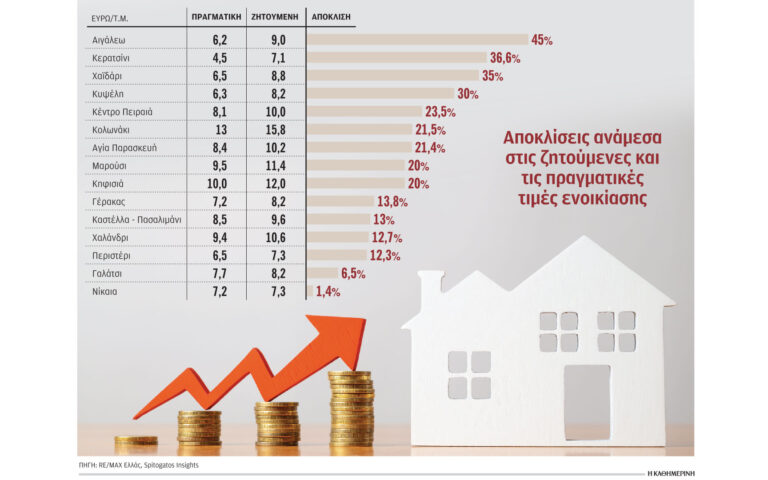The growth and investment prospects in Greek real estate market, despite the significant deterioration of the international climate in the sector. According to the latest annual survey Emerging Trends in Real Estatecarried out by PwC on his account Urban Land Institute (ULI)the Athens market maintains its position in the global ranking (23rd among 30 markets), based on industry professionals’ estimates of its prospects in 2024. Considering that in recent years each market’s score in the final ranking is also determined by based on its size, the position of Athens is considered satisfactory.
An executive of the real estate industry, who participated in this year’s research, emphasizes that “the Greek market is growing at a faster rate than the rest of Europe, making up for lost ground after a prolonged period of economic crisis.” On the other hand, there are also experts who express their concerns about the extreme climatic conditions that hit Athens in 2023 (fires, heatwave, etc.).
Such as Mr. Tasos Kotzanastasis reports to “K”.executive member of ULI’s global management committee, “the Greek market has remained stable regarding its outlook for 2024. However, it would be good not to have particular expectations at least for the next 12 months, as liquidity is very low, something which is also reflected in the lowest volume of transactions recorded”.
Of course, despite its small size, the Greek market is also affected by the negative international situation. According to this year’s PwC survey, rising interest rates, skyrocketing construction costs, high inflation and the huge challenge of adapting the real estate market to the demands of ESG policies on environmental and social footprint are the biggest challenges. “The next year is considered particularly difficult, as apart from the challenges of adapting to an environment of high interest rates and high construction costs, the geopolitical factor has now been added,” notes Mr. Kotzanastasis.

In this context, the sectors – on a pan-European level – that are expected to gather the most investment interest are not the “traditional” ones, i.e. office buildings, or shopping centers/stores. On the contrary, the greatest demand is found in categories such as residences, student residences, centers for assisted transfer and care/accommodation for the elderly, as well as logistics, which continue to maintain their momentum, both in Greece and abroad. However, although the prospects for 2024 are considered negative overall, it is positive that there is no oversupply of real estate that existed e.g. during the financial crisis that hit the world economy in 2008-2009. This means that the properties that will be put on the market, due to financial pressures of their owners (distressed), will be limited. On the other hand, a negative factor for completing more transactions is the fact that selling prices have not yet adjusted downwards, which all industry experts expect.








